Understanding the Clutch: Why the Old-School Clutch Is Still a Key Player in Modern Cars
September 3, 2024
Have you ever wondered how your car changes gears smoothly?
The magic behind this is something called the clutch. It’s a crucial part of your car’s transmission system. Let’s dive into what the clutch does and why it’s so important.
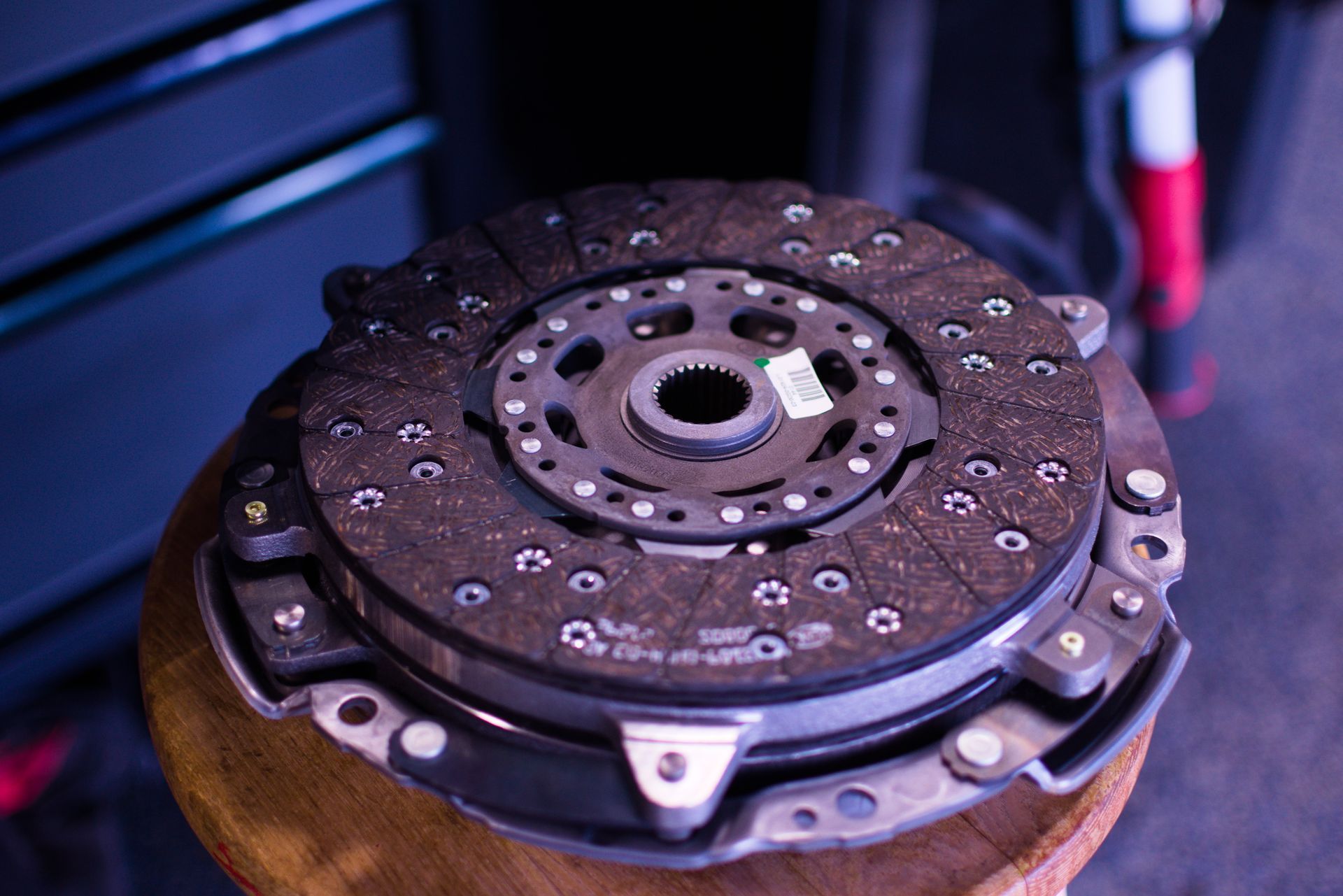
What is a Clutch?
The clutch is a special mechanism in your car that helps connect and disconnect the engine from the wheels. Think of it as a switch that lets you change gears without stopping the car. When you press the clutch pedal, it temporarily disconnects the engine from the wheels, allowing you to shift gears smoothly.
How Does the Clutch Work?
When you press the clutch pedal with your foot, you’re making a separation between the engine and the wheels. This happens because the clutch has two main parts: the clutch disc and the pressure plate.
- Clutch Disc:
This part is like a big, round sandwich that sits between the engine and the transmission. It spins with the engine and helps transfer power to the wheels.
- Pressure Plate:
This part pushes against the clutch disc to press it tightly onto the flywheel, which helps power get to the wheels.
When you press the clutch pedal, the pressure plate moves away from the clutch disc, breaking the connection between the engine and the wheels. This allows you to change gears without grinding or damaging your transmission.
Why is the Clutch Important?
The clutch is essential for several reasons:
1. Smooth Gear Changes
: It helps you switch gears smoothly, making driving more comfortable and preventing damage to the transmission.
2. Starting from a Stop
: When you start your car from a stop, the clutch allows the engine to idle while you slowly release the pedal, making it easier to start moving without stalling.
3. Maneuvering in Traffic:
In slow-moving traffic, the clutch helps you control the car better, making it easier to navigate through tight spots or stop-and-go situations.
Signs Your Clutch Might Need Attention
Just like any other part of your car, the clutch can wear out over time. Here are some signs that you might need a clutch repair:
- Slipping Gears:
If your car feels like it's slipping out of gear or the engine revs without a corresponding increase in speed, it could be a clutch issue.
- Difficulty Shifting Gears
: If you have trouble changing gears or hear strange noises when you try, your clutch might be wearing out.
- Grinding Noises:
Grinding sounds when shifting gears can indicate that the clutch is not engaging or disengaging properly.
Taking Care of Your Clutch
To keep your clutch in good shape, here are a few tips:
- Don’t Ride the Clutch:
Avoid resting your foot on the clutch pedal while driving. This can cause unnecessary wear and tear.
- Shift Gears Smoothly:
Try to change gears gently without jerking or forcing them.
- Get Regular Check-ups
: Have your clutch checked during regular maintenance visits to catch any issues early.
Understanding the clutch and its role in your car can help you appreciate its importance in your vehicle’s operation. If you notice any of the signs mentioned, it's a good idea to have your clutch checked by
David’s Automotive Repair
to keep your car running smoothly.
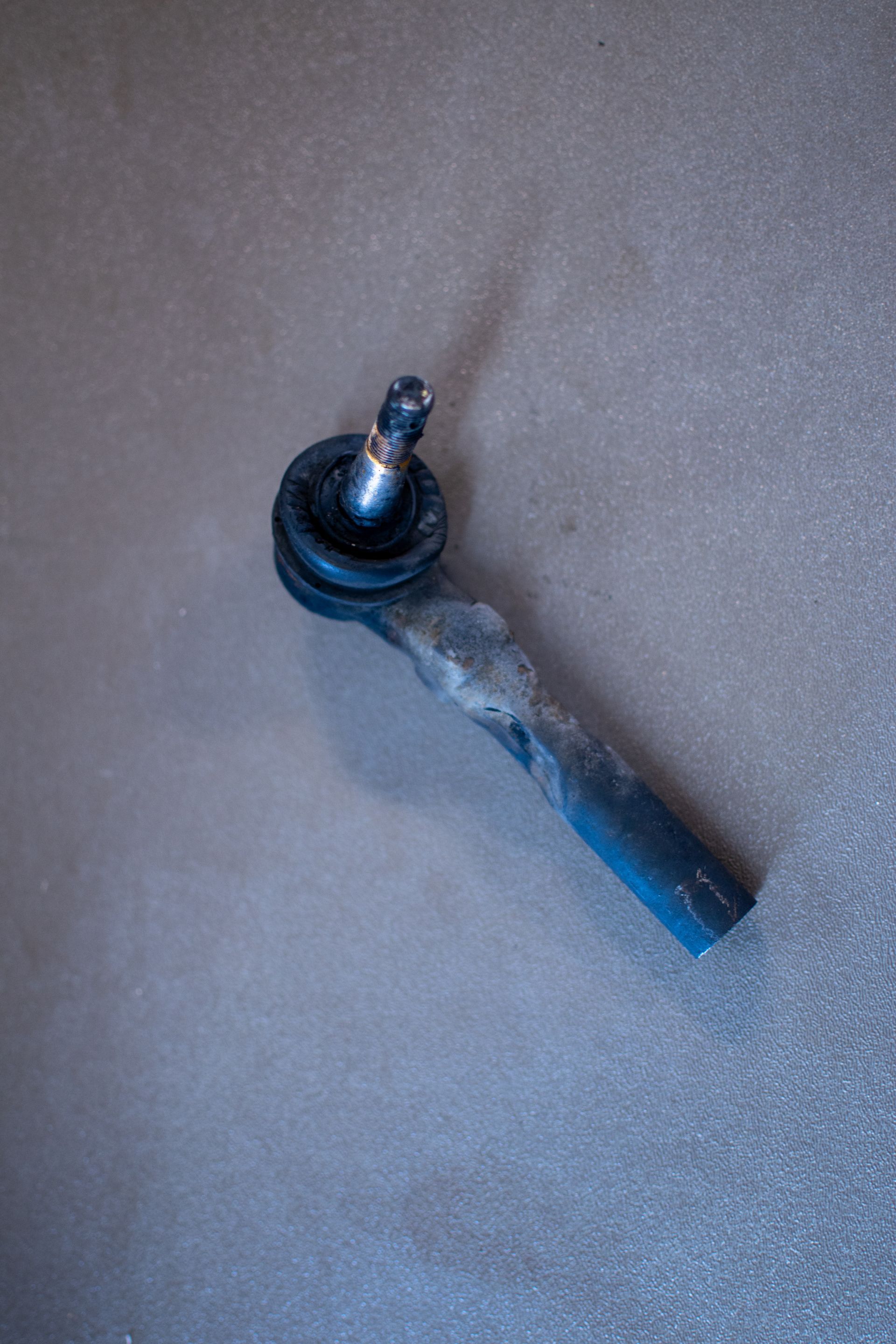
They connect the control arms to the wheels, allowing them to move smoothly while steering and driving over bumps. Over time, ball joints wear out, which can make your car harder to control and less safe to drive. If your ball joints are going bad, you might hear clunking or squeaking noises when turning or driving over rough roads. Your steering may feel loose, or your car might pull to one side. In some cases, worn ball joints can cause uneven tire wear, making it harder to keep your car driving straight. If a ball joint completely fails, it can cause a wheel to shift out of place, leading to a dangerous situation. Driving with bad ball joints can put extra stress on your suspension and lead to costly repairs. If your car isn’t handling like it should, it may be time for some suspension repair. At David’s Automotive Repair, we’ll inspect your suspension and make sure your car is safe to drive. Call us at 972-625-1836 to schedule a reservation today.
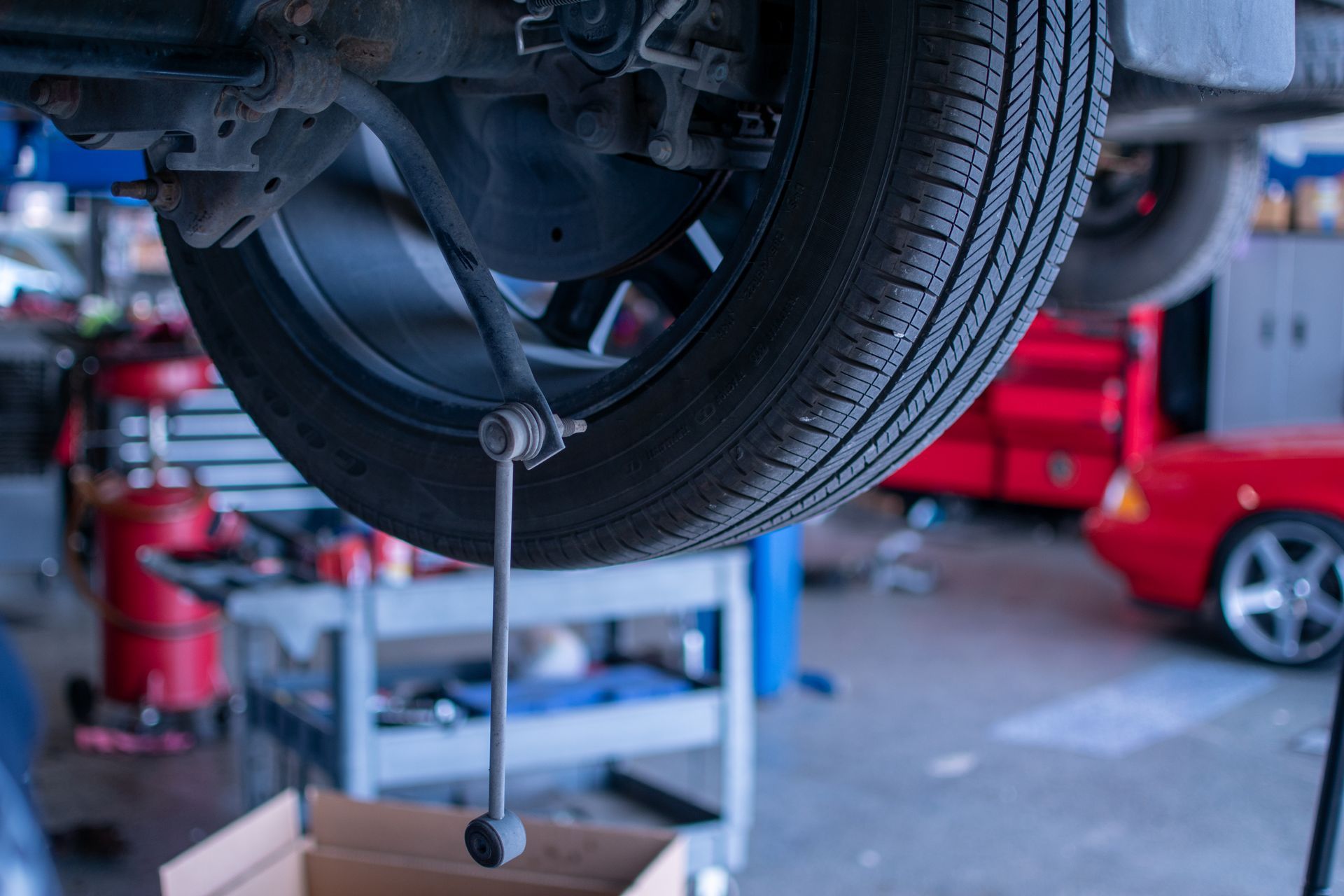
It connects both sides of the suspension, helping your tires stay firmly on the road. The sway bar end links attach the bar to the suspension and allow it to do its job. Over time, these parts can wear out, making your car feel less stable and harder to control. If your sway bar or end links are worn, you might hear clunking or rattling noises when driving over bumps. Your car may feel loose or wobbly when turning, and in some cases, it might lean more than usual in curves. Damaged sway bar components can also affect your steering, making it feel less responsive. Ignoring a worn sway bar or broken end links can lead to poor handling and extra stress on your suspension. If your car isn’t feeling as stable as it should, it may be time for a suspension repair. At David’s Automotive Repair, we’ll check your suspension and make sure everything is working properly. Call us at 972-625-1836 to schedule a reservation today.
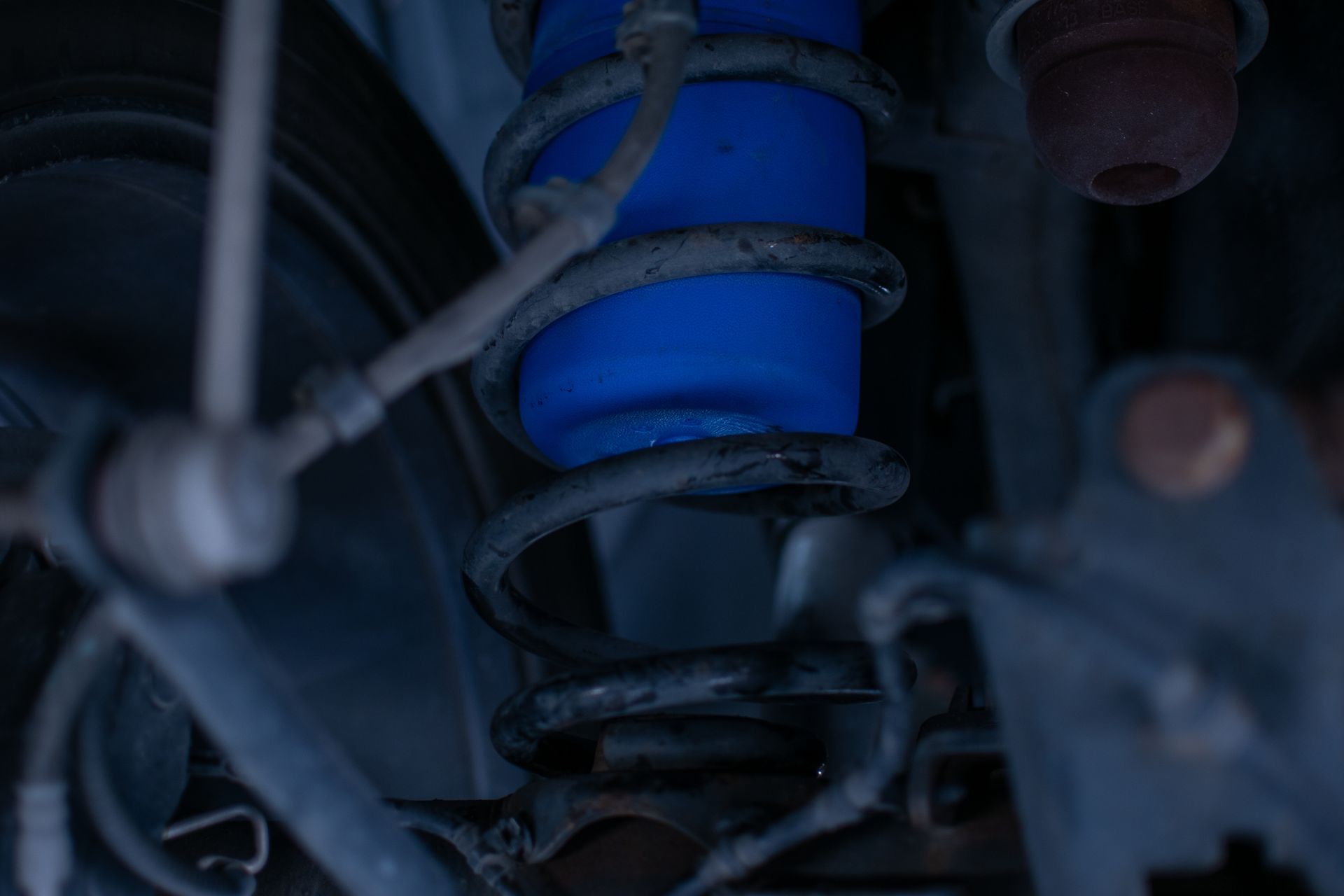
They work with your struts or shocks to keep your ride smooth and stable. Over time, springs can weaken or even break, making your car harder to control and less comfortable to drive. If your springs are worn out or broken, you might notice your car sitting lower than normal, especially on one side. You may also hear clunking noises when driving over bumps or feel your ride becoming rougher. In some cases, broken springs can make your car lean in turns or cause extra strain on other suspension parts. Driving with bad springs can lead to uneven tire wear, poor handling, and more expensive repairs down the road. If your car isn’t riding as smoothly as it should, it may be time for a suspension repair. At David’s Automotive Repair, we’ll inspect your suspension and make sure your car is safe to drive. Call us at 972-625-1836 to schedule a reservation today.
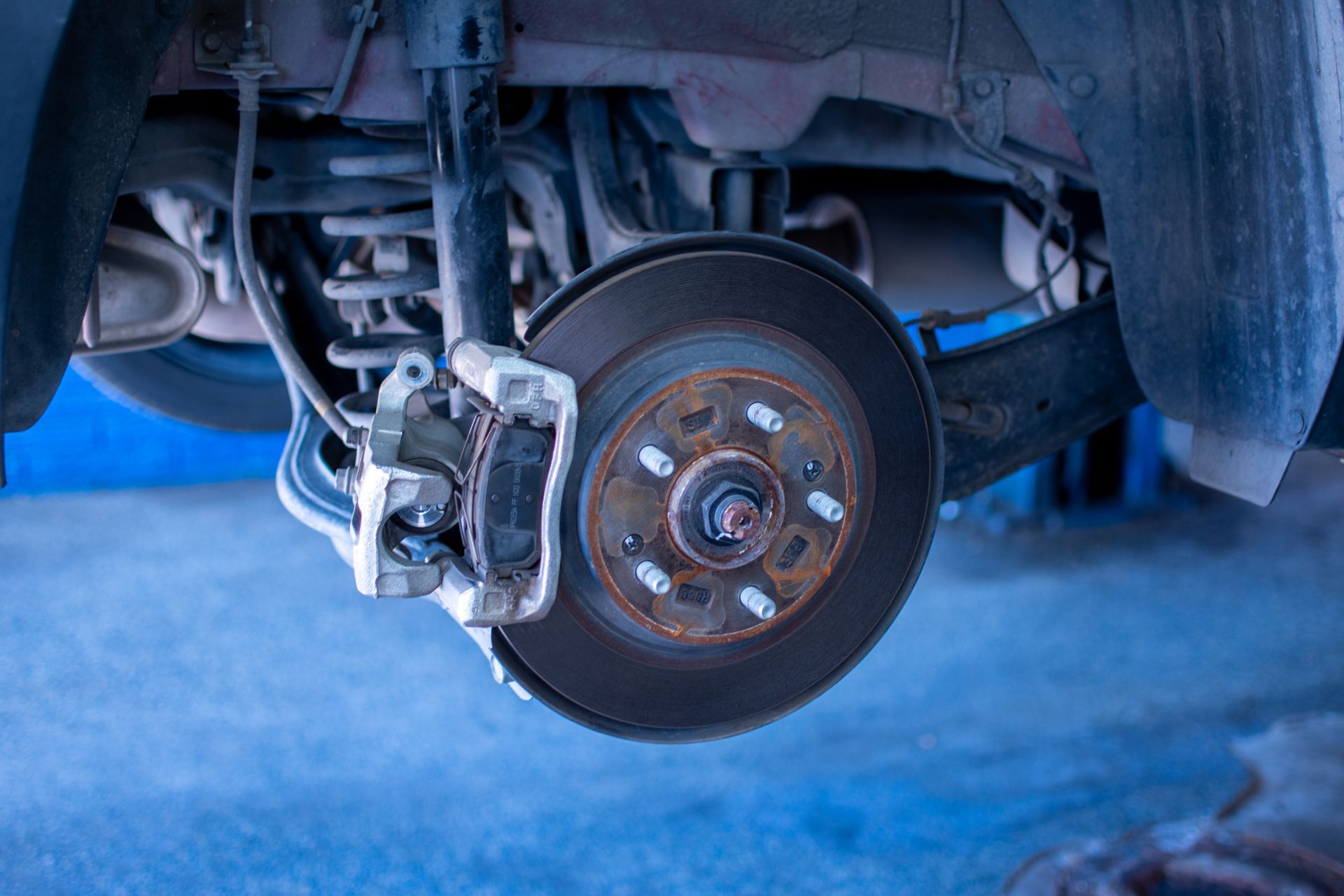
If something doesn’t feel quite right—like squeaking, grinding, or a longer stop than usual—it’s time to get them checked. At David’s Automotive Repair, we’re offering a FREE brake inspection to give you peace of mind and keep your family safe on the road. Plus, take $25 OFF your brake pad and rotor replacement when service is needed! What We Check During Your Free Brake Inspection: When you bring your vehicle in, our certified technicians will perform a complete brake system inspection, including: • Brake pad thickness • Rotor condition • Brake fluid level and quality • Brake caliper performance • Brake lines and hoses • Parking brake (emergency brake) function • Signs of uneven wear or damage • Test drive to check braking response If your brakes need attention, we’ll walk you through what we find in simple terms and offer a no-pressure recommendation. Don’t wait until you hear a grinding noise—book your free brake inspection today and save $25 if you need brake service! 📅 Schedule Your Reservation Now Upon drop off of your vehicle, let your service advisor know that you want your FREE brake inspection AND $25 off brake pads and rotors! 📍 Serving The Colony, Castle Hills, Frisco, Little Elm, Lewisville & beyond 📞 Call us at 972-625-1836
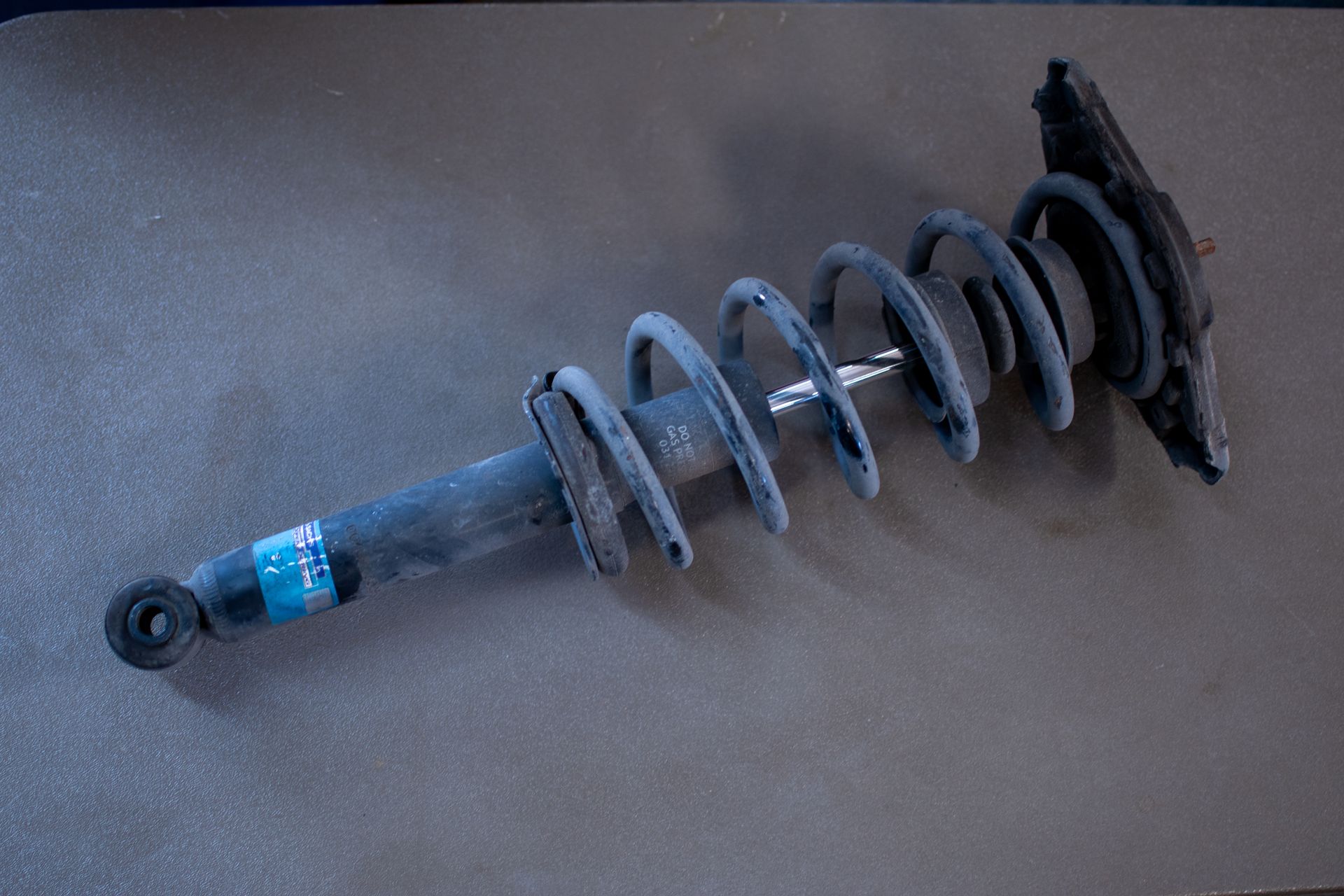
They absorb bumps, support your car’s weight, and help with steering and braking. Over time, they wear out, making your car harder to handle and less comfortable to drive. If your struts are bad, you might notice your car bouncing too much after hitting a bump or feeling shaky when turning. The front end may dip forward when you brake, or you might hear clunking noises when driving over rough roads. Worn struts can also cause your tires to wear unevenly, making it harder to stop and steer, especially in bad weather. Driving with bad struts can lead to bigger suspension problems and more costly repairs. If your car feels rough or isn’t handling like it should, it may be time for suspension repair. At David’s Automotive Repair, we’ll check your suspension and make sure your car is safe to drive. Call us at 972-625-1836 to schedule a reservation today.
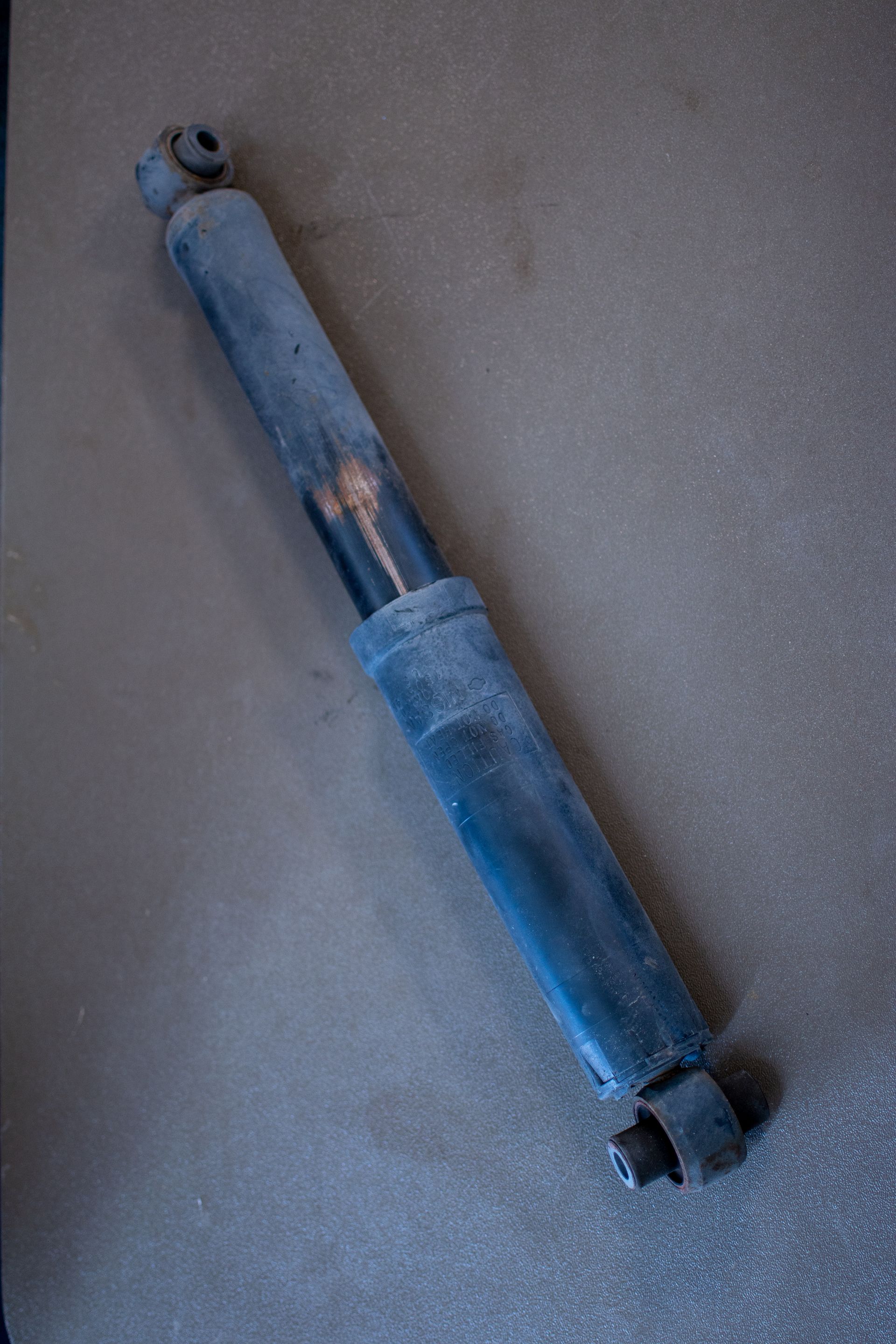
Over time, they wear out, making your car harder to control and less comfortable to drive. When shocks go bad, you might notice your car bouncing more than usual, especially after hitting a bump. The front end may dip forward when you brake, or the back end may squat when you accelerate. You might also hear clunking noises or feel your steering becoming less responsive. Worn shocks can even cause uneven tire wear, which affects your car’s grip on the road. If your ride feels rough or your car isn’t handling like it used to, it’s time for an inspection. At David’s Automotive Repair, we’ll check your suspension and make sure everything is working as it should. Call us at 972-625-1836 to schedule a reservation today.
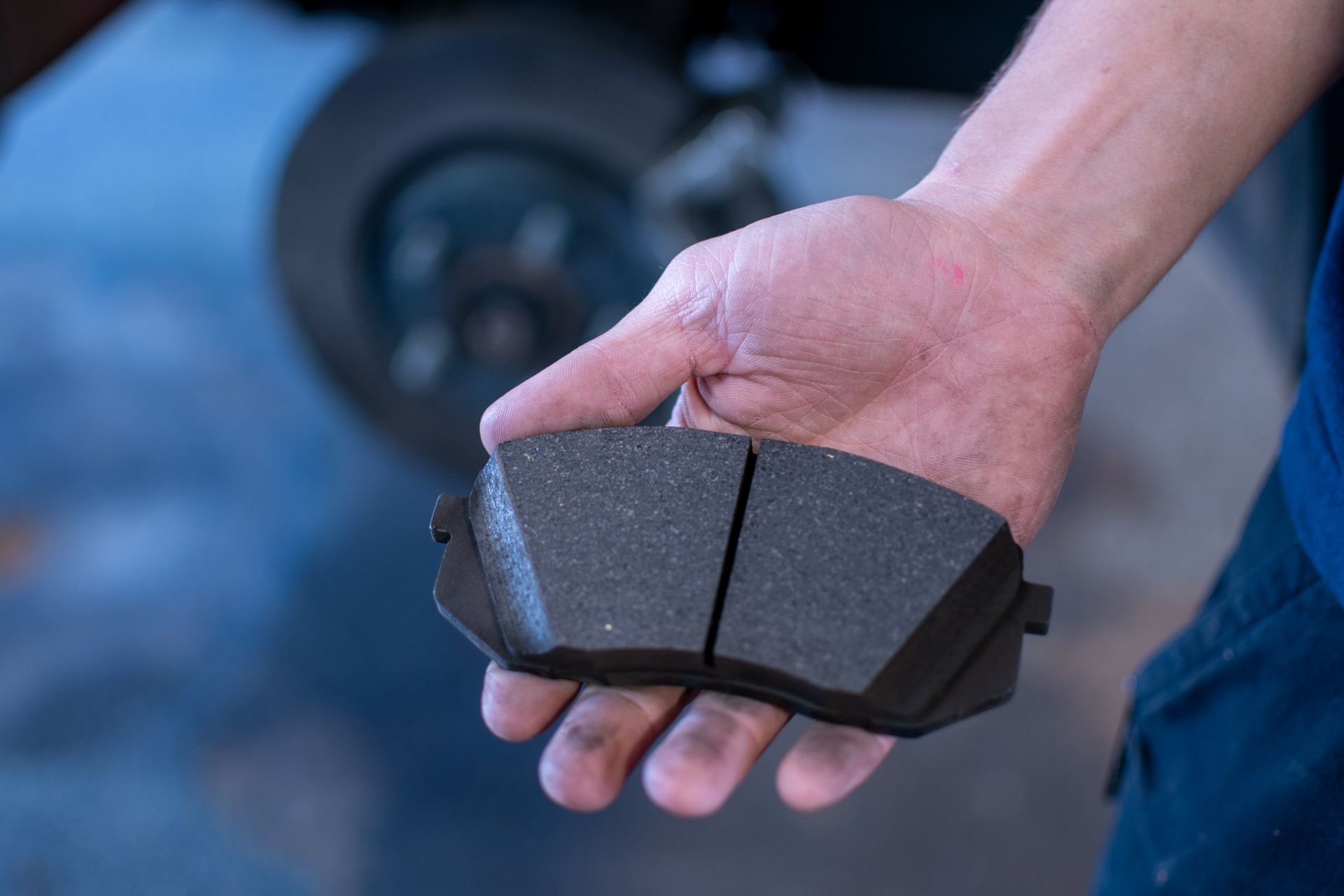
They hold the brake pads and press them against the rotors when you step on the brake pedal, helping your car slow down or stop. Over time, calipers can wear out or get stuck due to dirt, rust, or leaks. When this happens, your car might pull to one side, your brake pads may wear unevenly, or you could notice a burning smell after driving. A stuck caliper can put extra stress on your brakes and tires, leading to bigger and more expensive problems. If your brakes don’t feel right, it’s best to have them checked before the issue gets worse. At David’s Automotive Repair, we’ll make sure your brakes are working properly. Call us at 972-625-1836 to schedule a reservation today.
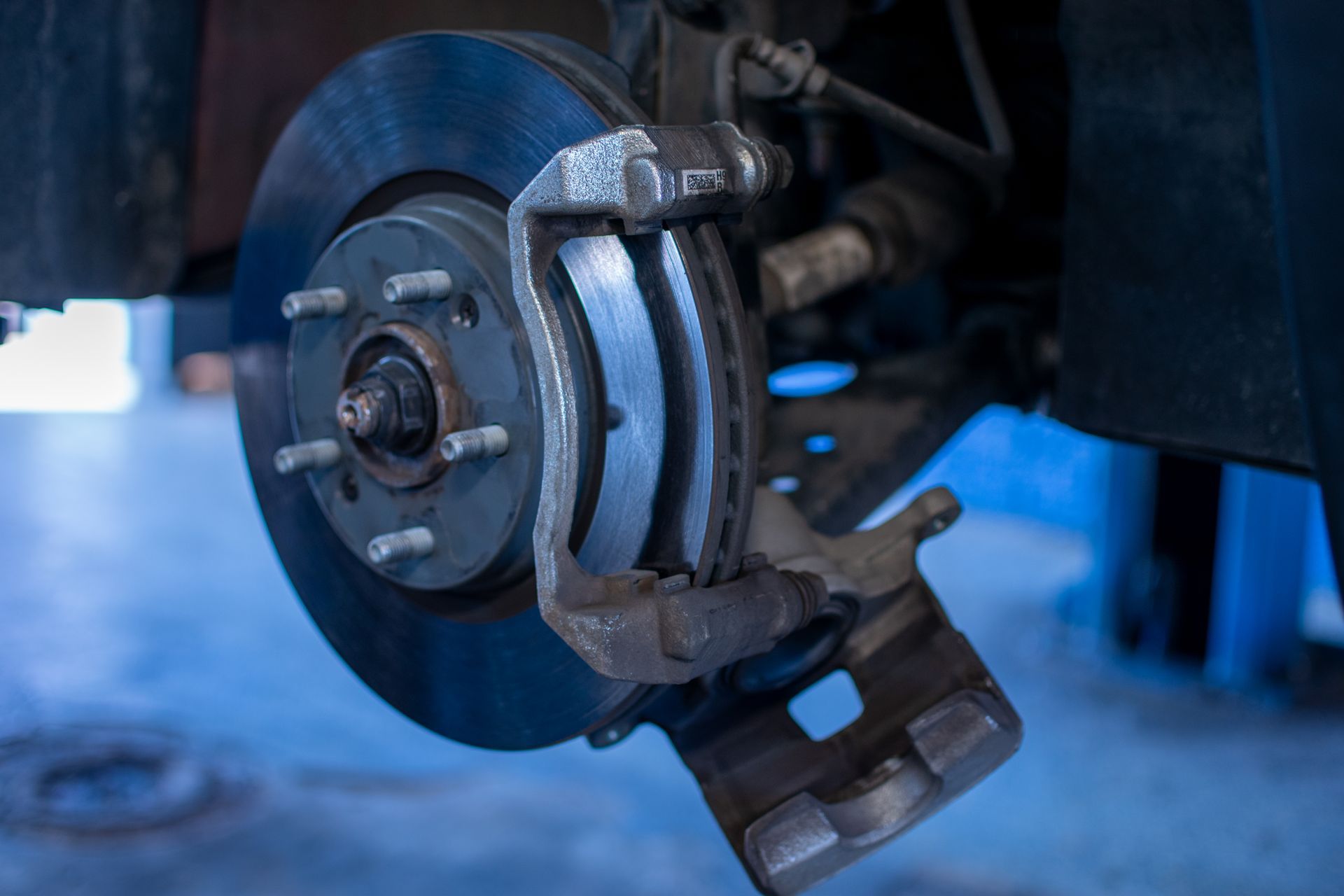
Over time, both wear down from the friction created every time you press the brake pedal. Brake pads are designed to press against the rotors, creating the stopping power needed to slow your car. When pads wear too thin, they can’t grip properly, leading to longer stopping distances and potential damage to the rotors. Rotors, the metal discs that the pads press against, also wear down and can become damaged and grooved, causing vibrations or squealing noises when braking. If you hear squeaking, grinding, or feel vibrations when stopping, it may be time to have your brake system checked. Ignoring these warning signs can lead to more expensive repairs and put your safety at risk. At David’s Automotive Repair, we inspect your brakes to ensure everything is working as it should. If you’re noticing any issues, give us a call at 972-625-1836 to schedule a reservation.
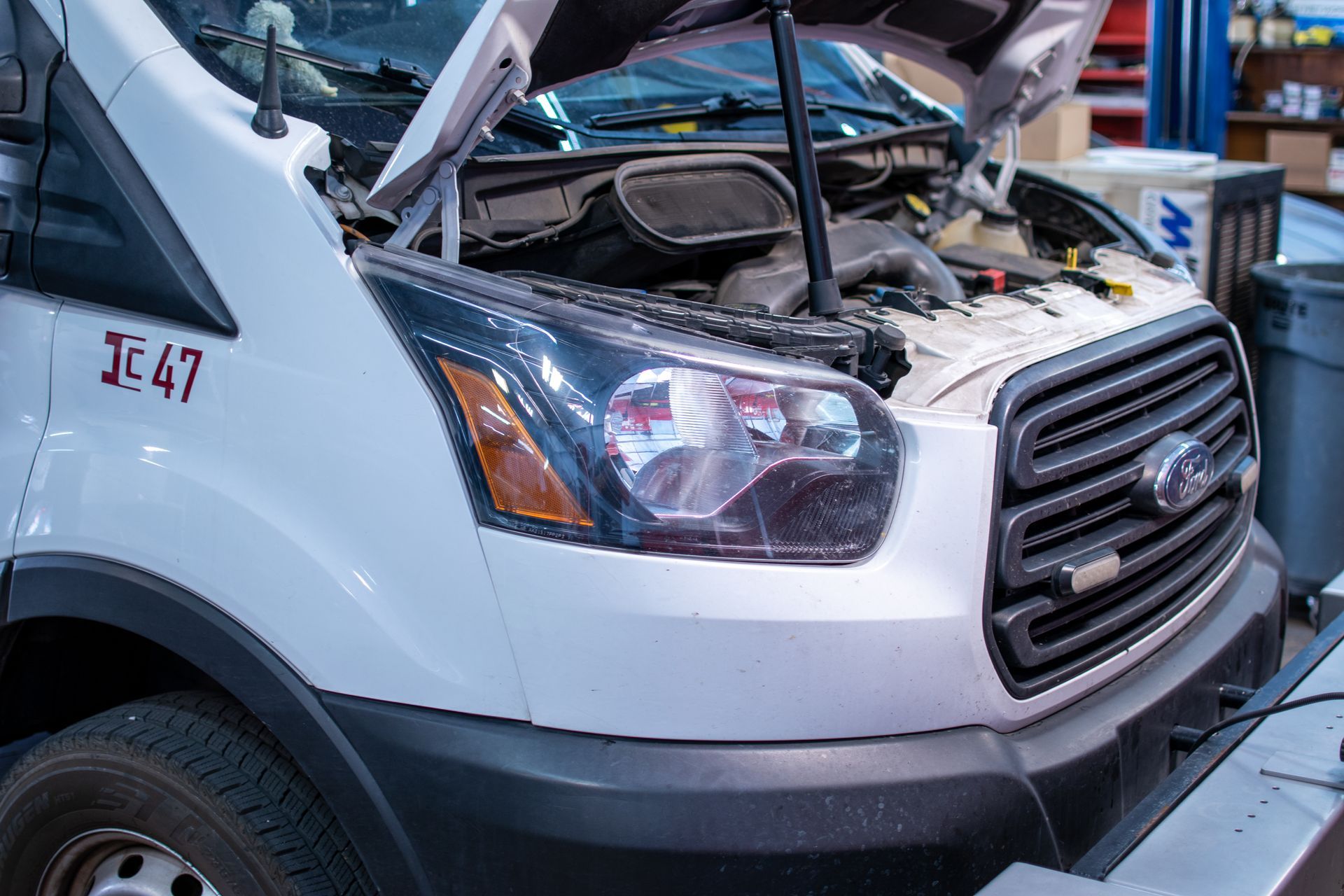
Regular maintenance is the best way to keep your vans on the road, prevent costly repairs, and avoid unexpected downtime. Routine services like brake inspections, tire rotations, fluid checks and flushes, battery testing, and alignments help extend the life of your fleet and improve fuel efficiency. Catching small issues early—like unusual noises, sluggish performance, or dashboard warnings—can prevent bigger problems down the road. When repairs are needed, getting them done quickly is essential to keeping your business on track. At David’s Automotive Repair, we know that every minute your van is off the road costs your business time and money. That’s why we offer same-day repairs whenever possible to get your fleet back in action fast. Call us at 972-625-1836 to schedule a reservation and keep your vans running strong!
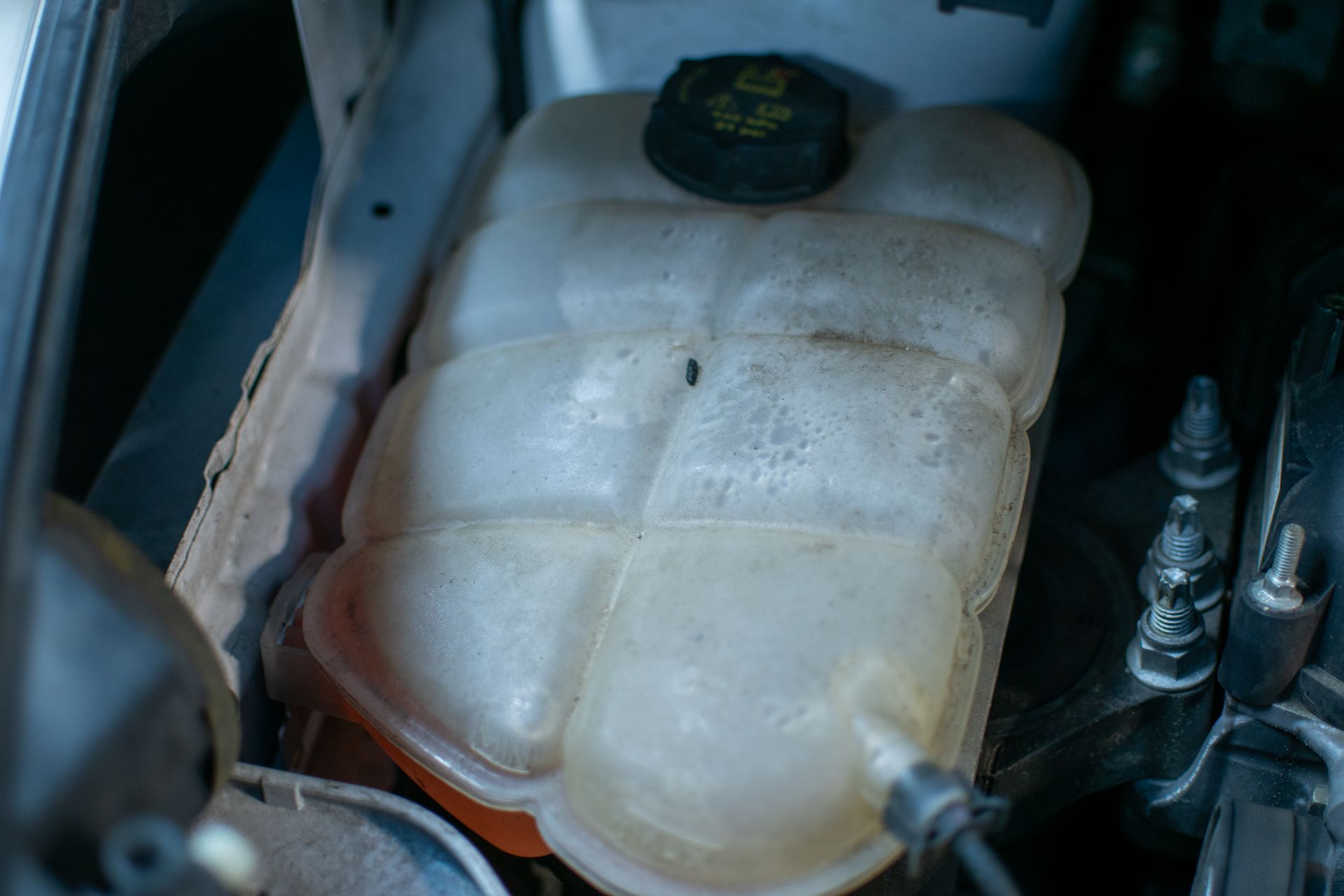
One common cause is low coolant levels. Your engine needs coolant to stay at the right temperature, and if there’s a leak or not enough fluid, it can overheat. A failing thermostat might also be to blame. If it gets stuck, it can prevent coolant from flowing properly. Other possible causes include a faulty water pump, a clogged radiator, or a broken cooling fan, all of which help regulate engine temperature. If your temperature gauge keeps rising, it’s best to have your car checked right away. Driving with an overheating engine can lead to costly repairs or even a breakdown. At David’s Automotive Repair, we can diagnose the problem and get your cooling system working properly again. Call us at 972-625-1836 to schedule a reservation today!



